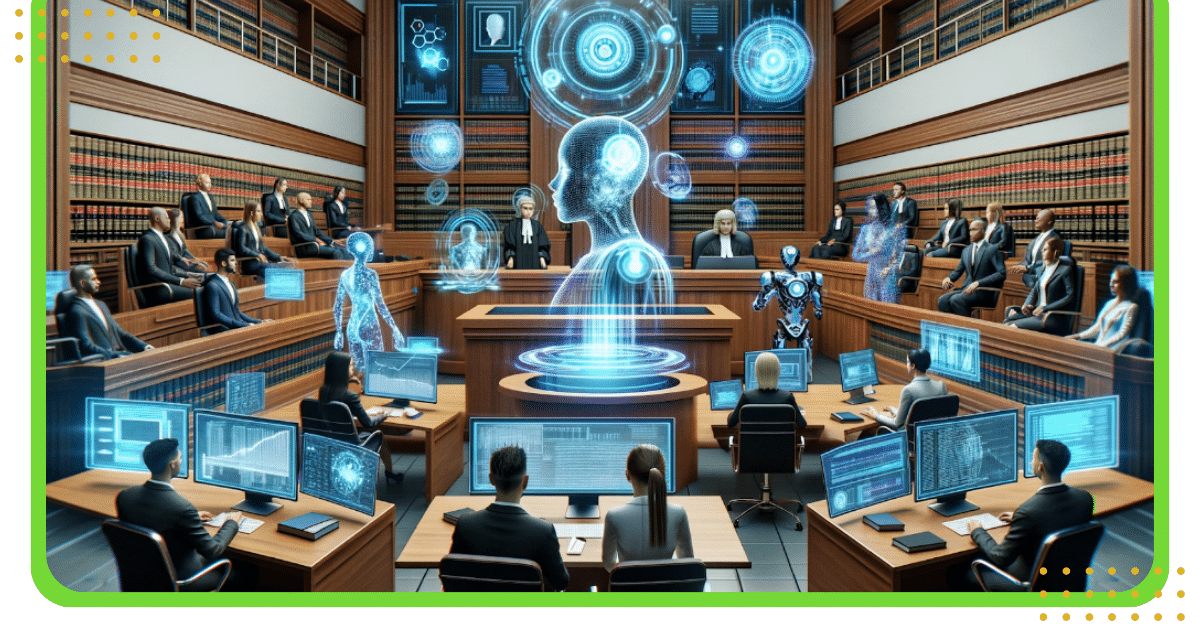
You’ve certainly heard by now about how generative AI (Gen AI) is changing or going to change the world as we know it. But you’ve also heard the horror stories of attorneys citing fake case law from hallucinations from Gen AI. You may be scared of Gen AI for billable work for good reason. But that doesn’t mean you shouldn’t embrace wholeheartedly this technology for a whole other segment of work you and your firm have to do.
Understanding Gen AI
Before diving into the applications of AI in the legal world, it’s essential to establish a fundamental understanding of this technology. Gen AI refers to the ability of computer systems to create (or generate) original content like text, images, and images. Gen AI will use the information available to an underlying data model to understand and replicate patterns.
What is key with Gen AI is that the outcome does not have a fixed outcome – but rather it’s based on statistics that predict an outcome based on probability. So, if you are looking for a definitive answer to a legal question, Gen AI might be a place to help you start looking, but should not be relied upon as factual information.
Using Gen AI for Billable Work
As I’ve already mentioned, it’s important to be cautious using Gen AI for billable work because it’s important that all of your work reinforces for your clients that their matter is being handled expertly and not farmed out to AI.
But there is a role for Gen AI in billable work; Gen AI is particularly excellent at handling unstructured data like emails, court filings, government code, etc. and translating that data into easily consumable information. CoCounsel’s success as a research tool is an early example of how to search through a set of documents (emails, internal webpages, deposition transcripts, etc.) to quickly to find relevant information. And as ChatGPT continues to evolve with its ability to use information from websites, the process for researching court filings, government codes, and generally publicly available information will become more and more streamlined.
While your clients are still counting on you for your expertise, sometimes it can be challenging to communicate the nuances of the law clearly to differing lay people. One of Gen AI’s strengths is taking existing information and summarizing it. So leveraging this technology to do things like draft an email based on the in-depth memo you’ve created to keep your client updated becomes a quick task with a prompt to create a summary email.
Using Gen AI for Non-Billable Work
While adopting Gen AI for Billable work is fraught with consequence and consideration, you (and your firm) should embrace Gen AI for non-billable work. Why? Because Gen AI will help you minimize the amount of time you spend on non-billable work while improving your law practice. How often do you find yourself knowing you should be focusing on your marketing efforts or on client management but never seem to find the time? Although you can’t bill for each hour, you need to put in the effort to find new clients, build your brand, and take care of a myriad number of back office tasks.
Gen AI can streamline many of the tasks to build your brand with a few simple prompts. For instance, you might be looking to draft content for a CLE you will be presenting. Or you might be looking to more regularly blog about key legal questions that are relevant to your practice. In a matter of seconds, Chat GPT can generate an outline of slides or a draft of a blog post based on an initial prompt. And, the best part is if you want to modify the outcome, you can just ask the application to change the output based on how you want it to be modified (make it shorter, more detailed, change the tone, etc.)
You can also use AI to draft messaging to send client invoices, making sure that you are communicating the value of your work effectively to your clients. This is a key touch point for your business and you can quickly supplement your communication with an AI drafted message.
Conclusion
AI is not about replacing the expertise of legal professionals but enhancing it. By leveraging AI to streamline processes, identify relevant issues, and provide more efficient services, attorneys can better serve their clients’ needs. The legal profession is evolving, and those who embrace AI as a tool to amplify their expertise will undoubtedly add more value to their clients while honing their legal skills effectively.
Want to know about how LeanLaw can help you run an efficient legal practice? Contact us today.



